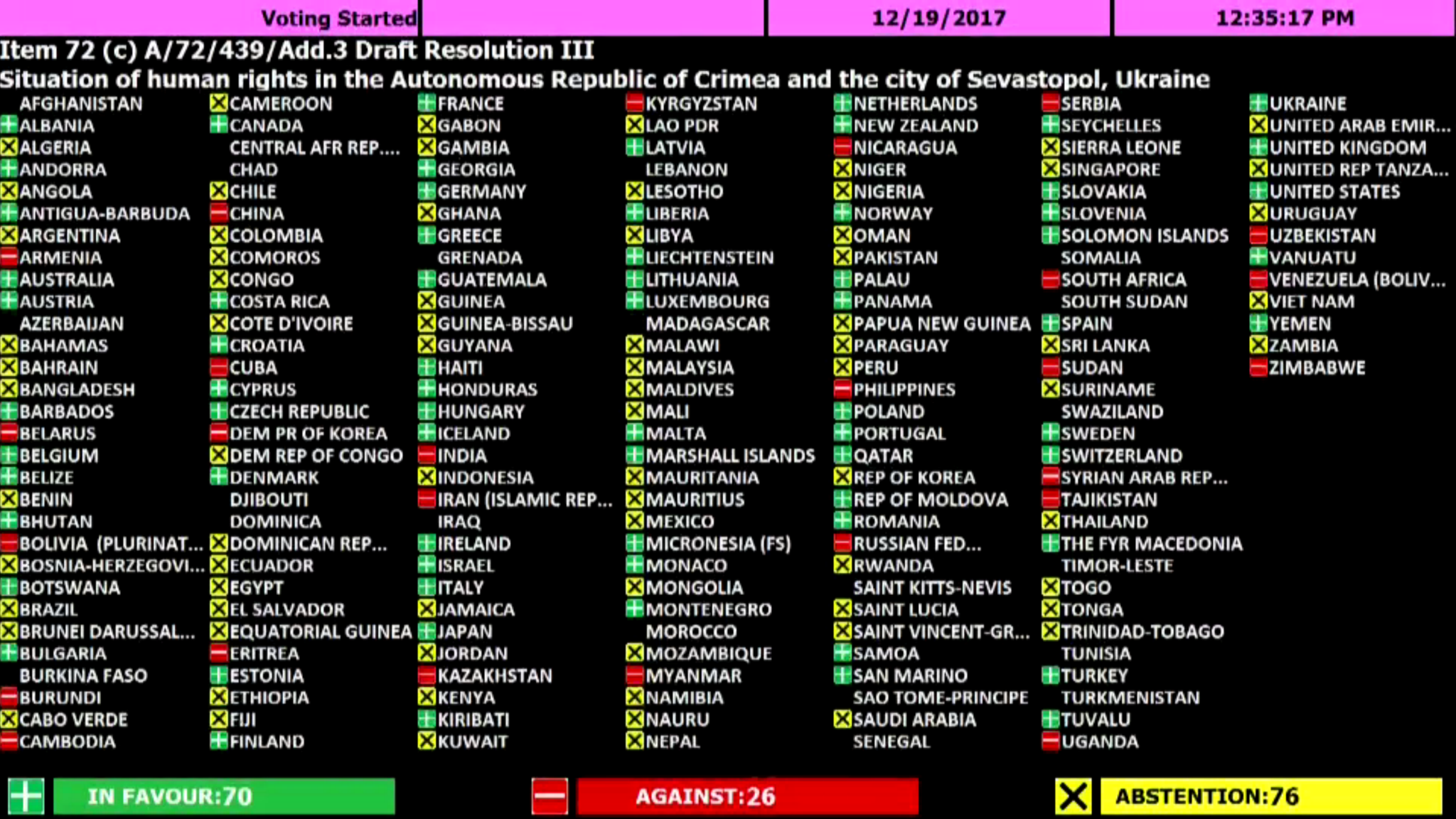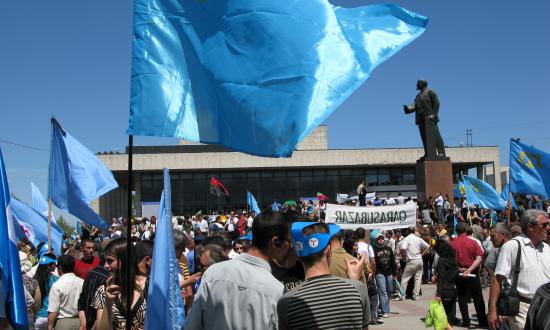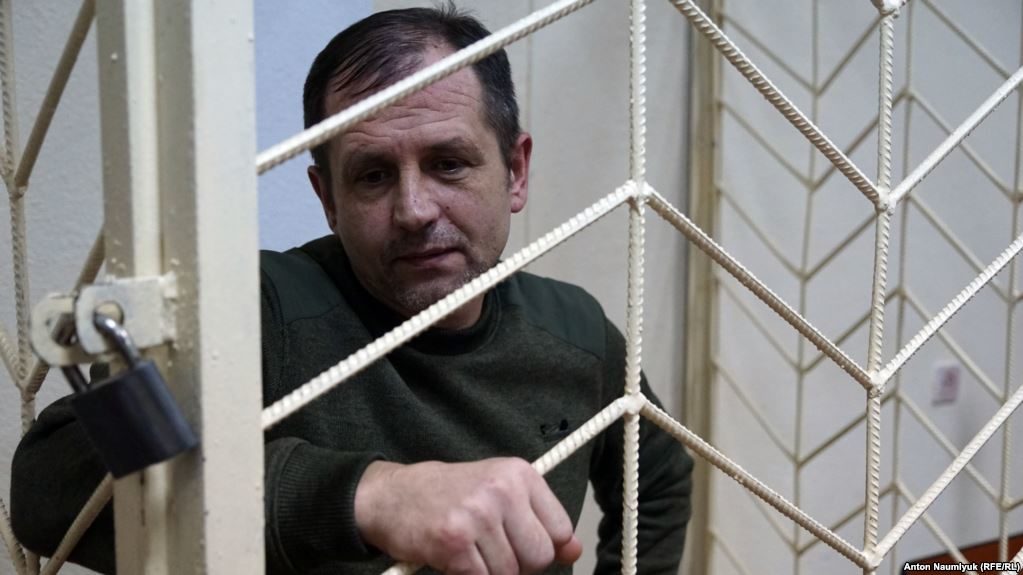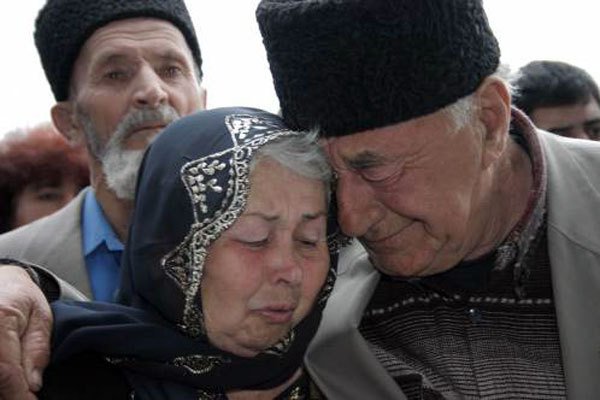On December 19, the UN General Assembly voted in support of a resolution on the human rights situation in Crimea entitled "Situation of human rights in the Autonomous Republic of Crimea and the city of Sevastopol, Ukraine" (72/190). 70 countries voted in favor, 26 voted against, and 76 abstained. The ones who voted against: Armenia, Belarus, Bolivia, Burundi, Cambodia, China, Cuba, DPRK, Eritrea, India, Iran, Kazakhstan, Kyrgyzstan, Myanmar, Nicaragua, Philippines, Russia, Serbia, South Africa, Sudan, Syria, Tajikistan, Uganda, Uzbekistan, Venezuela, Zimbabwe.

This is the third United Nations resolution on occupied Crimea. The first one (68/262) was adopted in March 2014: the UN confirmed the territorial integrity of Ukraine, stressing that the so-called "referendum" of March 16, which led to the occupation of the Crimean peninsula, "has no legal force."
The next resolution (71/205), approved on 19 December 2016, recognized Russia as an occupying power, and among other things called to end Russian repressions against Crimean Tatars, release illegally imprisoned Ukrainians, reverse the ban of the Mejlis, the Crimean Tatar representative organ, and to stop using the Russian justice system on the peninsula. 70 countries voted in support of this document, 26 voted against, and 77 abstained.
The title and subject matter of today’s UN resolution coincides with last years’,
In an article for Yevropeiska Pravda, Tetiana Pechonchyk from the Center for Human Rights Information outlined what the difference between the two resolutions is.
1. Invokes international humanitarian law
The text of the new resolution includes not only references to international norms related to the protection of human rights, but also extended references to international humanitarian law (in particular, the Geneva Conventions of 1949 and the Additional Protocol I of 1977). This right regulates the protection of victims of war, as well as restricts methods and means of warfare and defines the responsibility for violating these norms.
Such changes mean that the situation in the Crimea was recognized as a continuing occupation and an international armed conflict - this was missing in last year’s document. Although it should be emphasized that this is not a new recognition. In 2016, such a qualification was given, in particular, by the Office of the Prosecutor of the International Criminal Court in The Hague.
In practice, this means that Crimean citizens who became victims of occupation can rely on wider instruments of international legal mechanisms of protection.
2. Calls to implement preliminary ruling of UN Court
The resolution took into account the beginning of the "Ukraine vs Russia" process at the UN International Court.
The document requires Russia to "fully and immediately" comply with the ruling of the Court of 19 April this year on interim measures in this case, drawing attention to the established practice of discrimination against Ukrainians, Crimean Tatars, and other ethnic and religious groups.
Let’s recall that the interim court decision requires Russia to refrain from restricting Crimean Tatars from representing their own interests, including allowing the Mejlis of the Crimean Tatar people to resume its activities, and to ensure the availability of education in the Ukrainian language in the occupied peninsula.
3. Slams retroactive application of law
The resolution mentioned the problem of not only the establishment of laws of the Russian Federation in the Crimea, but also their retroactive application.
One of the striking examples of such persecution is the "case of February 26," according to which the occupation court in Crimea tried deputy chairman of the Mejlis of the Crimean Tatar people Akhtem Chiygoz and other Crimean Tatars who, in February 2014, left for a protest rally to the building of the Supreme Council of Crimea in Simferopol.
4. Condemns forced Russian citizenship
After occupation, the inhabitants of Crimea faced a difficult choice: to accept the passport of the aggressor or become "foreigners" at home.
The resolution condemns the automatic assignment of Russian citizenship to Crimeans, as well as the negative consequences for those who have refused passports of the occupying power. After the occupation, Russia declared that all Ukrainian citizens living on the peninsula are its subjects.
5. Condemns militarization of Crimea
The resolution addresses the problem of the militarization of the Crimea and calls on Russia to stop the "practice of coercion of the Crimean residents to serve in the armed or auxiliary forces of the Russian Federation, including through pressure or propaganda."
It once again noted that this is a violation of international law, since under the Geneva Conventions the occupying Power is prohibited from taking over from the occupied territories the army in the army.
The mobilization of the occupied population to Russian armed forces is one of the most serious crimes before the International Criminal Court in The Hague (thanks to the appeal of Ukraine, this court from 2014 received jurisdiction over its entire territory, including over the Crimea).
6. Highlights forced confiscations
The resolution raises another problem, which was not discussed previously - ownership. Its text calls on Russia to respect Ukrainian legislation and to abolish the laws it introduced in the Crimea, which allow for the forced eviction and confiscation of private property in violation of international law.
7. Condemns attacks against freedom of religion
A separate emphasis was placed on the issue of freedom of conscience and religions - police raids, threats against the Ukrainian Orthodox Church of the Kyiv Patriarchate, problems in the work of mosques and Muslim religious institutions, the Protestant Church, Greek and Roman Catholic churches, the persecution of followers of the "Jehovah's Witnesses" organization.
The persecution of religious communities in Crimea is a daily reality, which, unfortunately, is not given much attention.
The draft of the new UN resolution attempts to correct this injustice, clearly pointing out the problems of various religious groups in the occupied peninsula.
8. Notes Ukraine's support for Crimean media and NGOs
The resolution welcomes Ukraine's support for mass media and public organizations that were forced to leave the Crimea, and its support for them to "work independently and without any interference." The draft also includes an appeal to Russia to "abolish decisions that prohibit cultural and religious institutions, NGOs, human rights organizations, and the media."
9. Calls on both Russia and Ukraine to facilitate access of international observers
The new resolution, like the previous one, raises the issue of access of international observers to the Crimea, but this time it draws attention to limiting access not only by Russia but also from the Ukrainian side.
In particular, it is about the need to develop "transparent, accessible, non-discriminatory and operational procedures and rules governing access to Crimea for human rights defenders, journalists and lawyers, as well as the possibility of filing an appeal (for refusal)."
The fact that the current Ukrainian regulation of the entry of foreigners into the Crimea creates tangible obstacles for human rights defenders and journalists was discussed many times. The government has changed the current procedure for three times, but it remains a bureaucratic obstacle for those foreigners who could record and tell the world about human rights violations by protecting the victims of occupation.
The mention of this problem in a resolution co-sponsored by Ukraine gives hope that Kyiv is truly interested in its solution.
10. Urges Ukraine to help its Crimean citizens more
The new resolution not only condemns Russia's actions in the Crimea, but also "welcomes Ukraine's declarations that it is committed to protecting human rights and the fundamental freedoms of all its citizens."
The resolution draws attention to Ukraine's efforts to maintain ties with its citizens living in the occupied peninsula - economic, financial, political, social, informational, cultural, and others.
This is an important road map for the country, which in the fourth year of occupation still has no strategy for the return and reintegration of the Crimea.
A country the policy of which on Crimea is rather uncoordinated and contradictory, when the highest state officials from the highest state stands declare that Crimea is Ukraine, but at the same time Crimeans themselves are recognized as "non-residents" and suffer from various cases of discrimination and restrictions. For example, they still can’t vote at local elections in the area where they left after an illegal annexation.
By the way, Ukrainian IDPs, including those from Crimea, filed a complaint with the European Court of Human Rights because of the inability to participate in local elections at their places of actual residence after the resettlement. This case has already been handed over to the Ukrainian government.
The UN resolution calls on the Crimeans to "facilitate access to democratic processes, economic opportunities and objective information."
Read also:
- UN officially recognized Russia as an occupying power in Crimea
- Hague Court rules against Moscow on Crimea, so Moscow withdraws from Rome Agreement
- Ukraine vs. Russia in The Hague
- What Ukraine won and lost at the International Court of Justice
- Russia’s show trial and sentence against Crimean Tatar leader Chiygoz. What you need to know
- Ukrainians in Crimea: Six sanctions for refusing a Russian passport
- Is Russia getting ready to launch a nuclear strike from Crimea?
- First recruits from Crimea and North Caucasus republics deployed in 2017 Russian draft
- Russia aims to smear Mejlis after latest raid on Crimean Tatars which left one dead and imprisoned four
- Ukrainian Orthodox Church Kyiv Patriarchate in Crimea evicted from Cathedral
- Repression of Muslims in Crimea – a reflection of Moscow’s fear of Islam as an anti-colonial force
- Imaginary “terrorists” with no terror acts: Russia’s collective punishment of Crimean Muslims
- Moscow’s campaign against Jehovah’s Witnesses a threat to all believers in Russia





